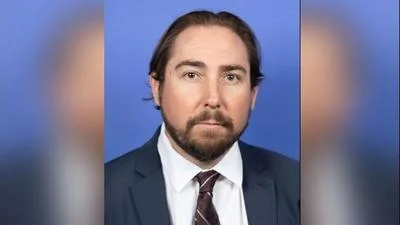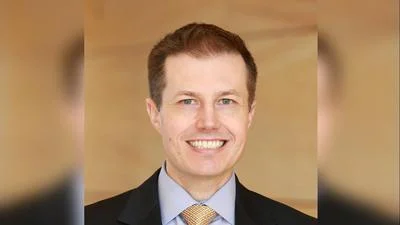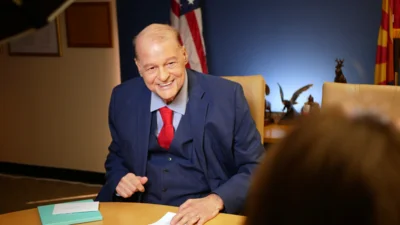Gina Swoboda | Voter Reference Foundation
Gina Swoboda | Voter Reference Foundation
A report by the Phoenix, Ariz.-based Voter Reference Foundation (VRF) reportedly reveals weaknesses in the voting system that permits U.S. citizens living abroad to vote remotely.
Under the Uniformed and Overseas Citizens Absentee Voting Act, uniformed services members and U.S. citizens living abroad have the right to vote in federal and state elections. They can do so by filling out a federal postcard application (FPCA), which serves as a voter registration and absentee ballot request form in one.
Voters receive their ballots 45 days in advance of Election Day and gain access to a free electronic tracking system that verifies when their ballots are accepted.
“It really shocked me to my core that the verification process is so loose,” said Gina Swoboda, VRF executive director. “I did not realize that people who do not live here and never intend to live here are affecting potentially the outcome of our elections.”
According to the VRF report, Wisconsin showed an increase of 886% in the number of FPCA forms from 2018 to the 2020 election, while Washington state showed a 1,200% increase in applications compared to a 612% increase in Arizona.
Donald Trump lost the 2020 presidential election in Washington, Arizona, and Wisconsin. Arizona and Wisconsin are typically swing states in the presidential election.
“With the exception of members of the military, the danger is that if there’s funding coming in, people are just going out overseas finding these people and adding them to the voter rolls so that they can vote and it also shocked me the number of states that are permitting people to vote again who do not have a vested interest in the outcome for that state’s elections," Swoboda told the Grand Canyon Times.
Overall, the study found there was a 100% to 300% increase in applications received nationwide.
“If the [state] assembly in Wisconsin does not choose to close the holes in the program to secure the UOCAVA eligibility for non resident civilians, it might help tip the balance to one candidate or the other in the 2024 election,” Swoboda said in an interview.
The study also found that Connecticut, Maine, Rhode Island, South Carolina and Vermont do not track FPCA forms at all.
“That’s shocking because we could have 150,000 people voting overseas in those states, which could definitely change the outcome of a race,” Swoboda added. “As an election official, you need to track everything because that's the checks and balances of the program.”






 Alerts Sign-up
Alerts Sign-up